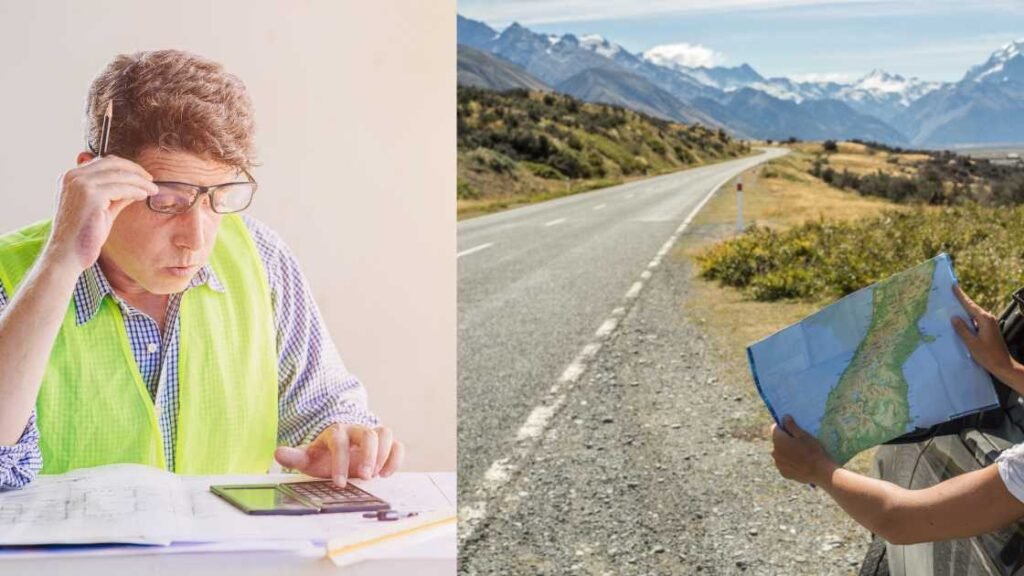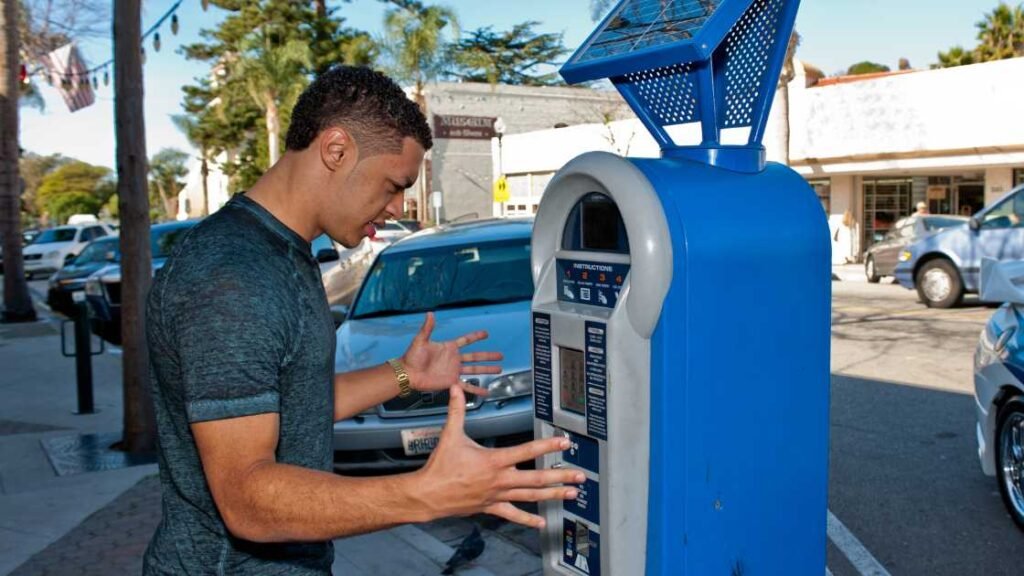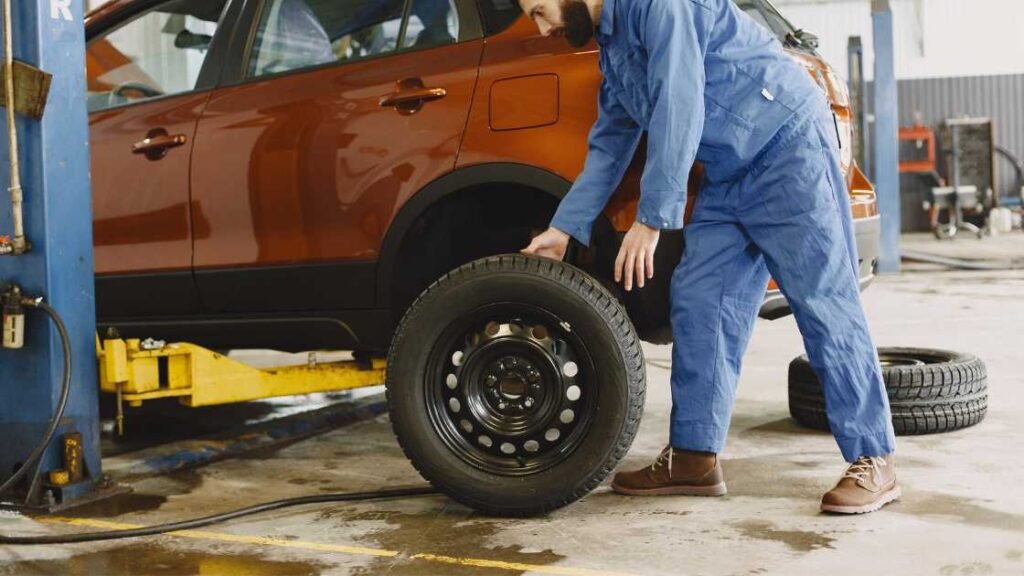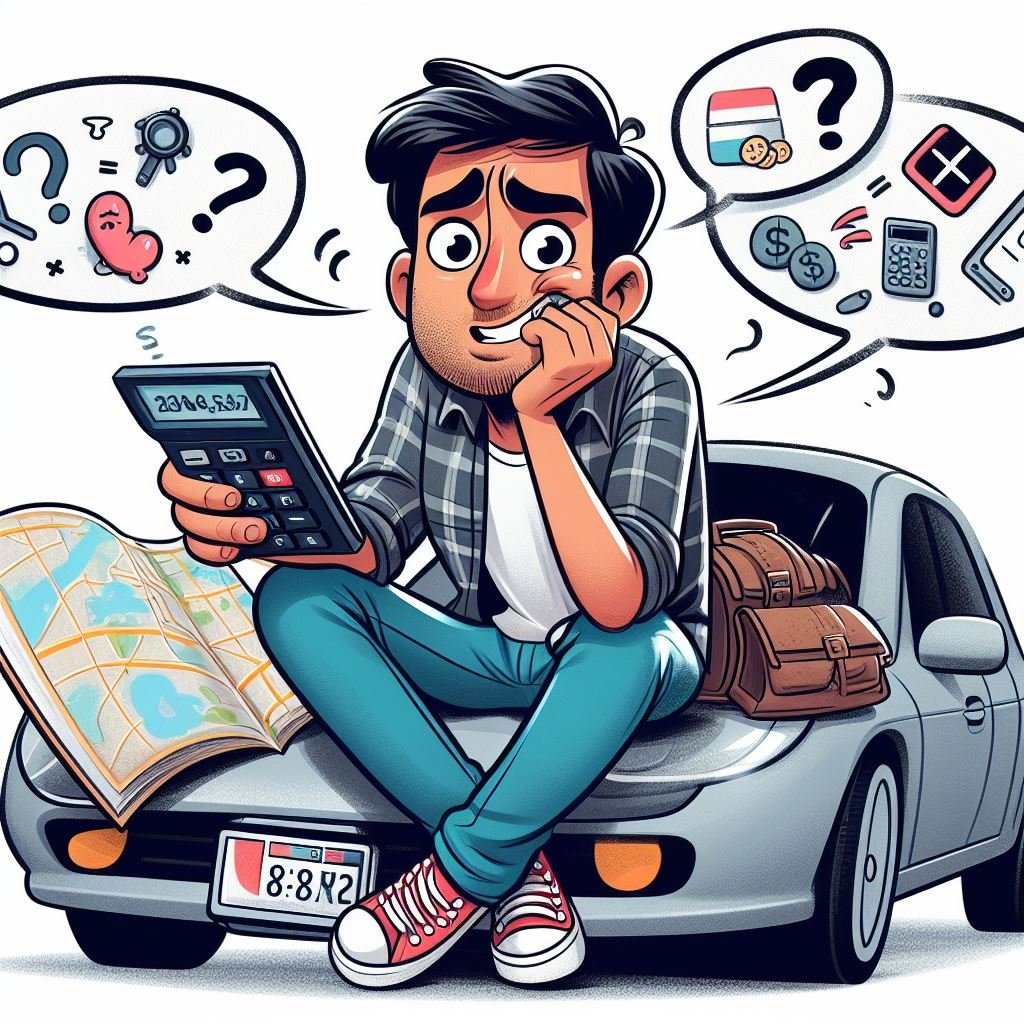To calculate the cost of a road trip, sum the expenses for fuel, accommodations, food, tolls, and any additional activities. Consider vehicle efficiency and route distance to estimate fuel costs accurately.
Starting on a road trip is an exciting endeavor that requires careful consideration of your budget to guarantee a seamless journey. How Do You Calculate the Cost of a Road Trip? Whether you’re planning a brief escape or a lengthy cross-country trek, comprehending the financial aspects is paramount. A road trip isn’t just a chance to discover new locales; it’s also a commitment to prudent spending on essential travel requirements.

A judicious approach to your travel expenses empowers you to relish scenic routes and distinctive stops minus the burden of financial strain. This calculation involves a range of factors, encompassing gas prices, vehicle mileage, overnight accommodations, and meals at roadside establishments.
Seasoned travelers understand that a meticulously crafted budget is the cornerstone of a triumphant and unforgettable road trip. Armed with a bit of arithmetic and foresight, you can confidently hit the road, assured that your adventure won’t strain your finances.
Table of Contents
Toggle- Planning Your Route
- Estimating Fuel Expenditure
- Accommodation Costs
- Food And Beverage Budget
- Toll Roads And Parking Fees
- Vehicle Maintenance Pre-trip
- Entertainment And Attractions
- Emergency Expenses
- Souvenirs And Shopping
- Using Road Trip Cost Calculators
- Frequently Asked Questions Of How Do You Calculate The Cost Of A Road Trip
- Conclusion
Planning Your Route
Ready for a road trip adventure? Planning your route is a thrill and a key step. It determines the journey’s length and cost. Let’s sink into making your travel plans cost-effective and fun!
Mapping The Distance
Knowing the total miles is essential to budgeting. Use online maps or apps to calculate the distance from start to finish. Keep these details in a notepad:
- Starting point and destination
- Major cities along the route
- Rest stops for breaks
Create a table for clear mileage tracking:
| Segment | Distance (Miles) | Estimated Fuel Cost |
|---|---|---|
| Start to City A | 120 | $15 |
| City A to City B | 140 | $17 |
| City B to Destination | 90 | $11 |
Considering Alternative Paths
Exploring different routes can save money. Shortcuts might cut miles but consider traffic and road conditions. Check these options:
- Scenic backroads that may offer fuel savings
- Toll roads for speed versus cost
- Current roadworks to avoid delays
Draw out a simple route comparison chart. Include pros and cons for clarity:
| Route Choice | Distance | Tolls | Scenery | Traffic |
|---|---|---|---|---|
| Main Highway | 350 miles | $20 | Plain | Heavy |
| Backroads | 330 miles | $0 | Beautiful | Light |
Estimating Fuel Expenditure
Planning a road trip is exciting! Knowing the cost helps you budget smartly. A major part is estimating fuel costs. Read on to learn how to calculate this vital part of your travel budget.
Calculating Fuel Consumption
Let’s dip into the steps:
- Know your car’s mileage – Find it in the manual or online.
- Map your route – Use an app to get the distance.
- Multiply mileage by distance – Get the estimated fuel usage.
Example: If your car runs 20 miles per gallon and your trip covers 300 miles, you’ll need about 15 gallons of fuel.
Current Fuel Prices And Trends
Fuel prices change often. Use these tips to get current costs:
- Check fuel price websites or apps – for the latest figures.
- Look at trends – Prices can rise in summer or holidays.
| Date | Price per Gallon |
|---|---|
| March 1 | $2.50 |
| April 1 | $2.70 |
Multiply the fuel needed by the current price. Now, you have your fuel cost.
Accommodation Costs
Accommodation costs can considerably affect the overall price of your road trip. Smart planning is key to reducing these expenses while maximizing comfort and convenience. The right strategy can turn lodging from a financial burden into a cost-effective aspect of your journey.
Booking In Advance Vs. On The Road
Booking hotels in advance often leads to better deals and secured spots. By reserving rooms early, you lock in rates that could rise closer to your travel date. An early booking means less stress about finding a place to stay.
Choosing on-the-road accommodation keeps plans flexible but risks higher prices. Spontaneity may cost more if affordable hotels are full. You might end up paying premium prices for last-minute bookings.
Cost-benefit Analysis Of Lodging Options
Exploring lodging options is vital for a budget-friendly road trip. Each option comes with pros and cons. Look beyond just the price. Consider location, amenities, and potential savings on food or parking.
- Hotels: Convenient but can be pricey. Look for free breakfast and parking to save extra.
- Motels: Generally cheaper, often with free parking. Amenities might be limited.
- Hostels: Budget-friendly with shared facilities. Perfect for solo or young travelers.
- Rentals: Great for groups. They offer space and a kitchen to cook meals, cutting down on food costs.
- Camping: The most budget-conscious choice. Campgrounds offer different facilities, from simple to full-service.
Compare and contrast these options with your road trip goals in mind. Let’s consider two travelers, Bob and Alice. Bob values comfort and amenities. Alice prioritizes savings and flexibility.
| Bob (Hotel) | Alice (Camping) | |
|---|---|---|
| Booking | Advance | On the Road |
| Price | Higher | Lower |
| Amenities | Luxury | Basic |
| Cancellation Policy | Strict | Flexible |
| Food Costs | External | Self-Catered |
Bob books hotels online for the entire trip. He enjoys peace of mind but pays more. Alice stays at campsites. She saves money and enjoys the flexibility of unplanned stops.
Food And Beverage Budget

Planning a road trip can be an adventure, but expenses can also add up quickly. One major area to budget for is your food and beverage. Knowing how much to allocate for meals and drinks will help keep your trip enjoyable without breaking the bank.
Daily Eating Out Vs. Packing Meals
Eating out every day can be costly. To save money, consider packing meals.
Let’s compare:
| Option | Cost | Pros | Cons |
|---|---|---|---|
| Daily Eating Out | Higher | Variety, No prep | Expensive, Less healthy |
| Packing Meals | Lower | Saves money, Healthier | Needs planning, Prep time |
- Packing sandwiches, fruits, and snacks is smart.
- Plan a picnic at a rest area for a fun break.
- Refillable water bottles keep hydration costs low.
Investing In A Cooler Or Portable Stove
A cooler keeps drinks and perishables fresh. Portable stoves are great for hot meals.
Here is why they make a difference:
- Coolers mean more meal variety and freshness.
- Portable stoves allow for cooking, saving on hot meals.
Consider these tips:
- Invest in a quality cooler that maintains temperature.
- Portable stoves should be easy to use and clean.
- Check local laws for cooking at rest stops or campgrounds.
Toll Roads And Parking Fees

Toll Roads and Parking Fees are often overlooked elements in road trip budgeting. They can quickly add up, affecting the overall cost. Savvy travelers should calculate these in advance to avoid surprises. Here’s how:
Anticipate Toll Costs
The expense of toll roads is essential when planning a route. Many highways, bridges, and tunnels require payments. These fees vary widely.
- Use online toll calculators specific to your journey
- Check for toll passes or discounts available in the regions
- Consider alternate routes to avoid high toll areas if necessary
Remember, certain tolls are unavoidable. Plan these costs into your budget.
Budgeting For Parking In Cities
Parking expenses in urban areas can be significant. Budgeting for them ensures a smooth experience.
- Research parking rates in each city you plan to visit
- Look for early-bird specials or evening rates
- Use parking apps to find and reserve affordable spots
Include a buffer in your budget for unexpected parking fees. This smart planning keeps your road trip on track financially.
Vehicle Maintenance Pre-trip

Before you hit the road, checking your vehicle’s health is essential. Vehicle maintenance ensures not only the safety of passengers but can also help in preventing costly repairs down the line.
Scheduled Servicing Before Departure
Engage with a professional mechanic to perform scheduled servicing. This usually includes:
- Oil change to ensure engine efficiency
- Checking tire pressure and tread depth for optimal performance
- Brake inspection for safety
- Verifying fluid levels: coolant, brake fluid, transmission fluid
- Replacing wiper blades if needed for clear vision
Review your car’s manual for model-specific checks. Record servicing dates and outcomes in a log.
Emergency Repairs Fund
Unexpected issues may arise during a long drive. Setting aside an emergency fund can save you from stress. Consider the following:
| Emergency Item | Suggested Fund Amount |
|---|---|
| Tire replacement | $100-$200 per tire |
| Battery jumpstart or replacement | $50-$150 |
| Tow service | $75-$125 |
For a cushion, estimate around $500 for potential emergencies. Adjust based on your vehicle’s age, condition, and trip distance.
Entertainment And Attractions
When planning a road trip, it’s not just about the journey but also the fun stops along the way. Entertainment and attractions can make your road trip memorable. From sightseeing to unexpected detours, there’s plenty to budget for beyond gas and snacks. Let’s sink into how you can seamlessly blend fun with finances on your next adventure.
Allocating Money For Sightseeing
Exciting sights and landmarks often come with a price. To ensure you don’t miss out:
- Research top attractions in advance.
- Set a sightseeing budget for each location.
- Look for combo tickets to save on multiple attractions.
- Remember, parks and museums may have discount days.
Keep track using a budgeting app or a simple spreadsheet. Be ready for both planned tours and those spontaneous must-see spots!
Free Activities Along The Route
Road trips often surprise us with hidden gems that don’t cost a dime. Look for:
- Nature hikes and scenic lookouts.
- Historical landmarks and state parks.
- Community events or festivals.
Use free travel guides or apps to find these treasures. A picnic at a breathtaking viewpoint? A local cultural fair? Great memories don’t always have a price tag!
| Attraction | Cost | Tips |
|---|---|---|
| Zoos and Aquariums | $10-30 | Look for family passes or weekly discounts. |
| Amusement Parks | $50-100 | Pre-book online to find savings. |
| Museums | $0-25 | Visit on free admission days or with a student ID. |
Emergency Expenses
Emergency Expenses: No road trip plan would be complete without considering emergency expenses. Unexpected costs can crop up at any time. A flat tire, medical emergency, or a sudden car breakdown might not be pleasant. Yet, there are possible scenarios that could happen on the road. Being ready for these events could save both time and stress. Let’s explore how to prepare financially for such unplanned expenses.
Setting Aside A Contingency Fund
It’s wise to have a contingency fund in place. Think of it like a safety net that catches you if a surprise expense falls into your lap. You might question, “How much should I set aside?” As a good rule of thumb, allocate an additional 10-20% of your total trip budget. This could cover a range of unexpected expenses from car repairs to impromptu hotel stays.
- Vehicle Repairs: Spares and labor can add up quickly.
- Health Care: Whether it’s a first aid kit or a hospital visit.
- Extra Nights: Delays might require more accommodation.
Insurance And Roadside Assistance
Prior to your trip, consider your insurance coverage. Confirm you’re covered for incidents that may occur. This includes towing, tire changes, or locksmith services. Some policies offer roadside assistance as a part of their package. If not, consider signing up for a service like AAA. It could be instrumental in getting you back on the road swiftly.
| Service | Benefits |
|---|---|
| Towing Service | Covers costs for towing to the nearest repair shop. |
| Flat Tire Service | Assistance with tire replacement or repair. |
| Emergency Fuel Delivery | Provides fuel when you run out on the road. |
| Locksmith Service | Help if you’re locked out of your vehicle. |
Remember, a little preparation can prevent many headaches. It ensures enjoyable and safe road trips. Always check your coverage details. This ensures you’re not paying out-of-pocket. A sound emergency plan means you can focus on the adventure ahead!
Souvenirs And Shopping
Taking a road trip involves more than just travel costs. Souvenirs and shopping are fun parts of the adventure. They can also affect your budget. Plan well to enjoy picking keepsakes without overspending.
Budget For Keepsakes
Setting a budget for souvenirs keeps your spending in check. Consider these tips:
- Determine a limit for souvenir spending before you leave.
- Think about who you’ll buy for. Is it just for yourself, or others too?
- Research typical souvenir costs at your destinations. Use this to inform your budget.
Remember, keepsakes are meant to be memorable but not financially stressful.
Managing Impulse Purchases
Impulse buys can quickly derail your budget. Stay on track with these strategies:
- Only carry the cash you plan to spend on souvenirs.
- Make a list of potential items and stick to it.
- Pause before buying. Ask yourself if the item will be valued later.
Smart shopping means coming home with treasures that won’t break the bank. Use these tips to make smart choices for lasting memories.
Using Road Trip Cost Calculators

Starting on a road trip adventure requires smart planning, especially when budgeting. Using Road Trip Cost Calculators simplifies this task significantly. With just a few clicks, these tools provide a clear picture of expected expenses.
Benefits Of Automated Tools
The right tools turn complex tasks into simple ones. For road trips, these benefits are clear:
- Time-saving: Quick cost calculations
- Accurate estimates: Takes current fuel prices into account
- Budget-friendly: Helps avoid overspending
- User-friendly: Easy inputs for distance, mileage, and more
- Convenience: Access from any device
Comparison Of Popular Road Trip Calculators
Below are some favorite calculators and what they offer:
| Calculator | Features | Cost |
|---|---|---|
| Trip Cost Calculator – AAA | Customizable routes, dining, and lodging | Free |
| GasBuddy Trip Calculator | Fuel cost based on vehicle type | Free |
| Roadtrippers | Includes attractions along the way | Free/Paid versions |
Choosing the right calculator ensures a road trip remains within budget and full of fun.
Frequently Asked Questions Of How Do You Calculate The Cost Of A Road Trip
What Factors Impact Road Trip Costs?
Factors impacting road trip costs include fuel prices, vehicle efficiency, accommodation, food expenses, tolls, and any recreational activities. Budgeting beforehand helps manage expenses effectively.
How To Estimate Fuel Cost For A Road Trip?
To estimate fuel cost, divide the total distance by your car’s MPG (miles per gallon). Then multiply the result by the current fuel price. Adjust for any planned detours or stops.
Can You Save Money On Road Trip Accommodations?
Yes, you can save money by camping, booking budget hotels, or using travel apps for deals. Planning and comparing prices helps reduce accommodation expenses significantly.
Are There Tools To Calculate Road Trip Expenses?
Many online road trip calculators and apps are available. They factor in distances, fuel efficiency, and potential stops to estimate overall trip costs accurately.
How do you calculate driving costs?
To calculate driving costs, consider factors such as fuel expenses, maintenance, insurance, and depreciation of your vehicle. Add up these costs over a given period, and divide by the total miles driven to determine the cost per mile.
Conclusion
Starting on a road trip adventure is both exciting and budget-friendly when planned right. By calculating fuel costs, accommodations, food, and activities, you set the stage for a seamless journey. Remember, smart planning ensures memories without breaking the bank. Safe travels and happy budgeting!




